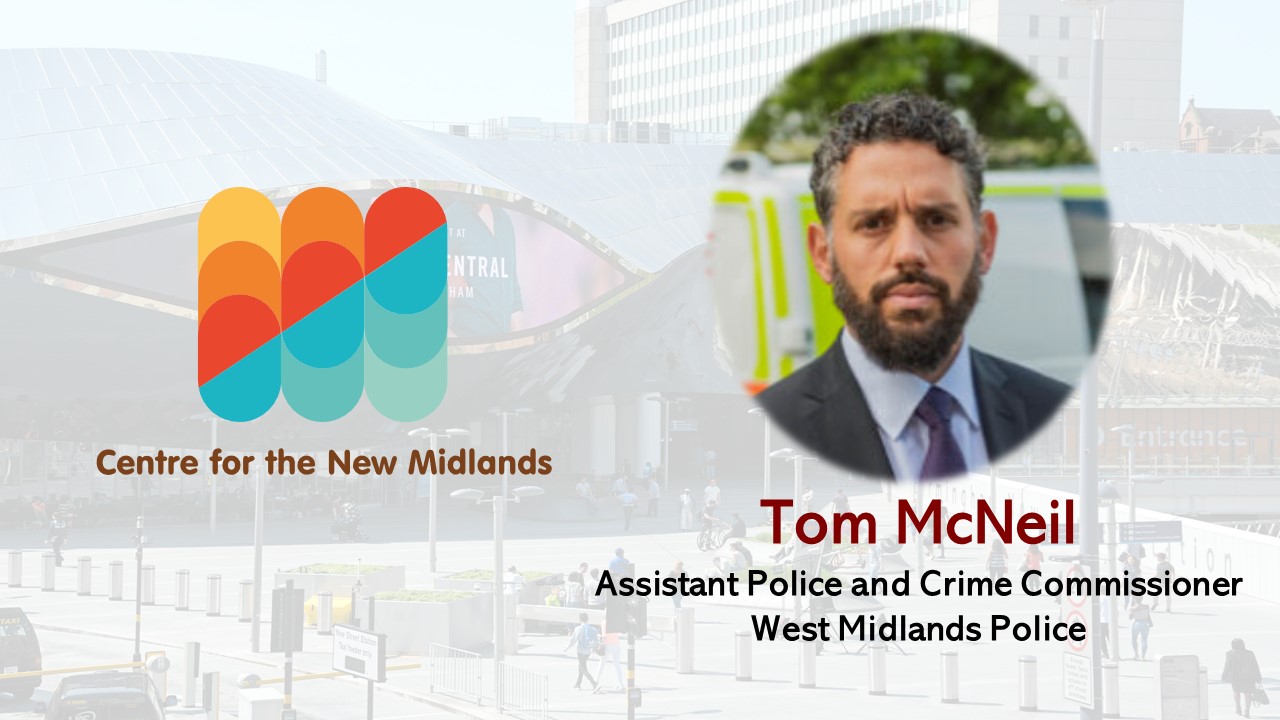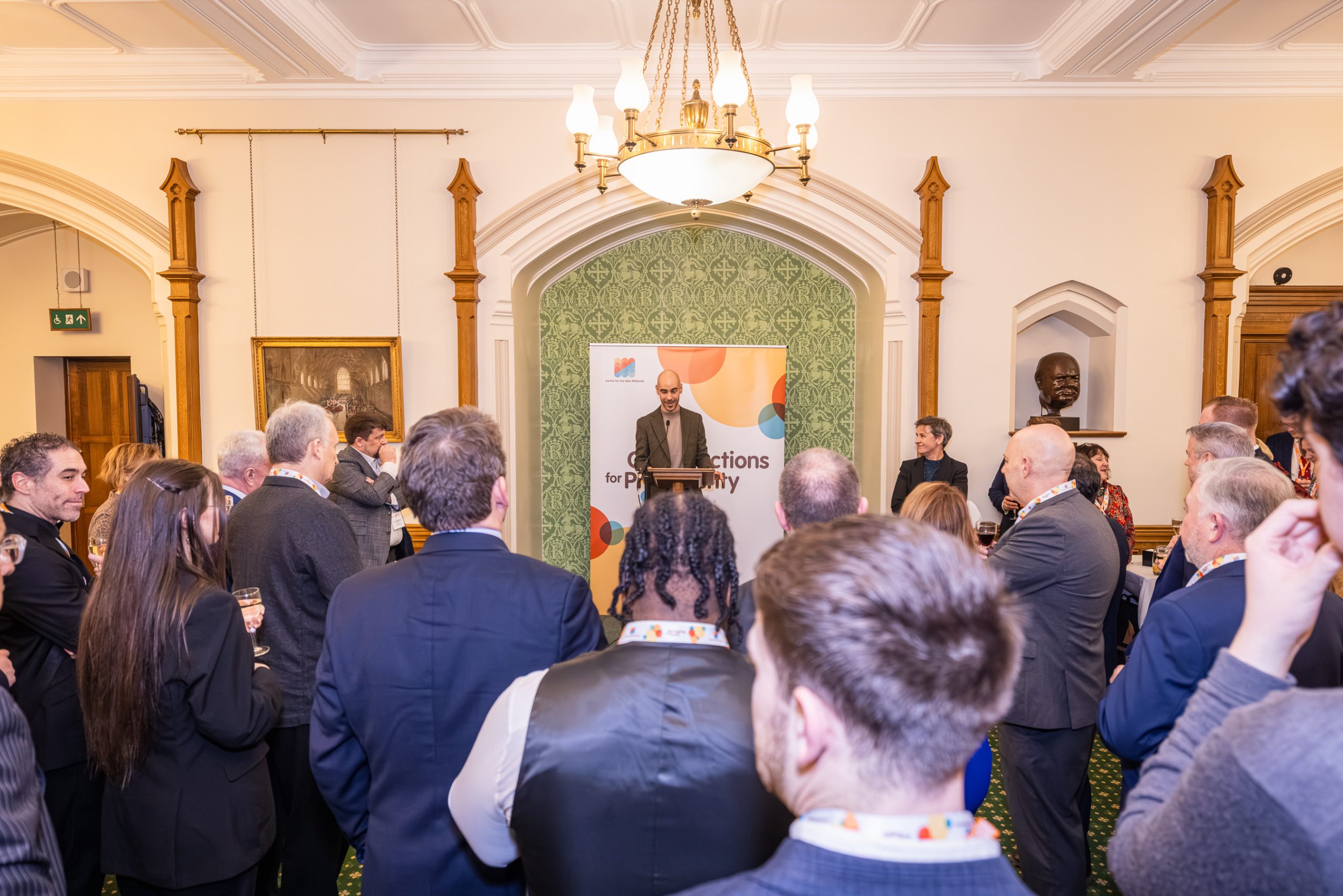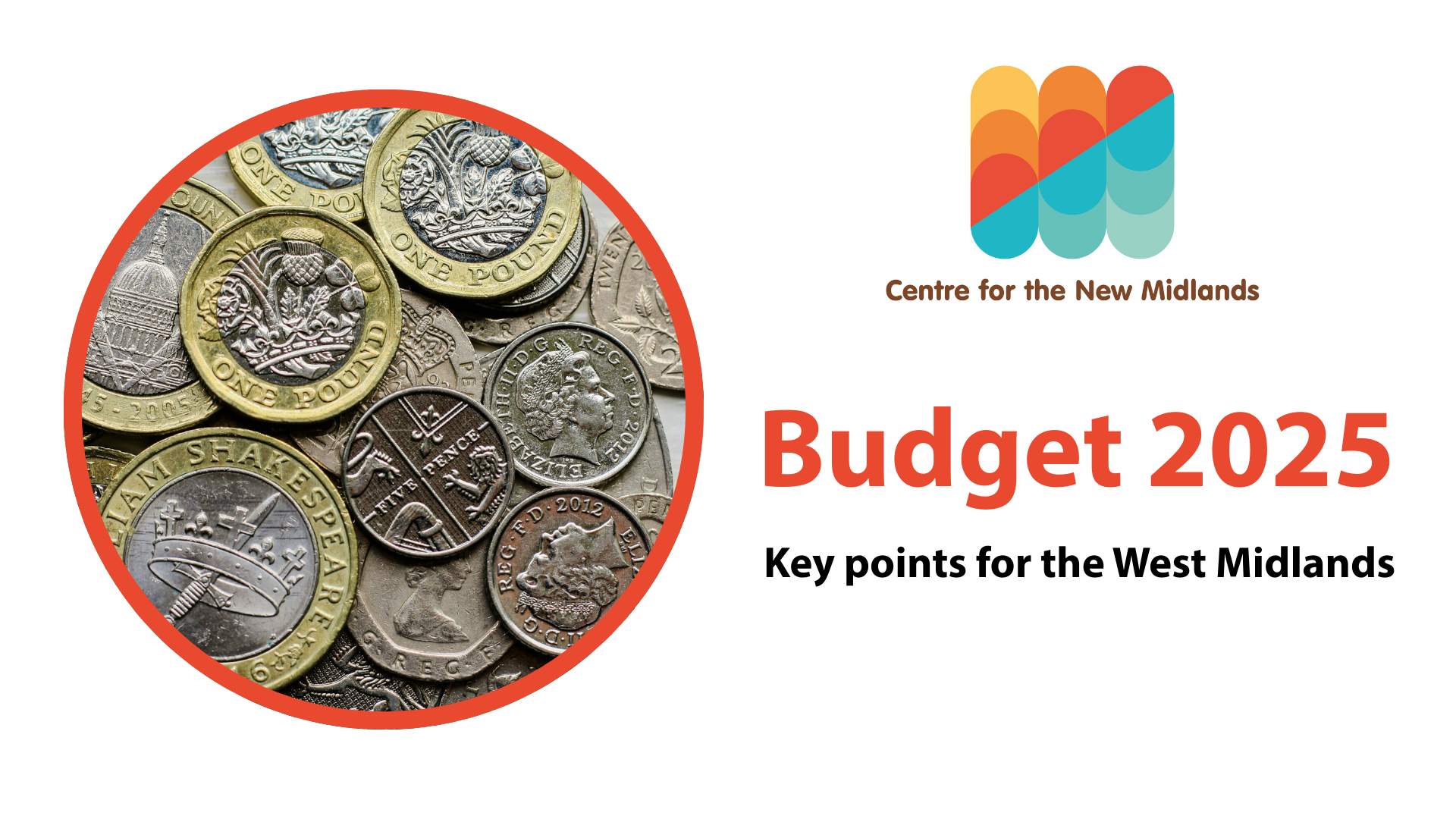“Youth services, in their many guises, are a fantastic social investment capable of achieving not only morally desirable social outcomes, but greater economic returns for business, the exchequer and the West Midlands.”
In this article, Tom McNeil (Assistant Police and Crime Commissioner for the West Midlands) explains why.
The Business of Youth Service Investment
There is a lot to admire in many British and West Midlands businesses, and with the livelihoods and purpose they provide for millions, the private sector is and will remain a vital pillar of how we live. Commercial endeavour offers us all a powerful mechanism for harnessing human creativity, specialism and ultimately productivity that can, in many sectors, yield great community benefit; from revolutionary renewable technology to the invention of truly clean transport. And just as corporations can learn from occupational psychology or the cross pollination of intellectual disciplines, the public sector can borrow important principles of strategic investment.
Businesses are held out as being the symbolic, and actual, pinnacle of efficiency. For many commercial endeavours, this description is well deserved. Honed manufacturing lines, streamlined processes, automation, strategic sales and customer care and an endless list of sound decisions aimed at avoiding the unnecessary. Efficient and effective businesses knowingly target activities or markets evidenced to yield reward beyond and exceeding the initial investment; accompanied by a relentless culture of striving for profit and driving down cost pressures.
Of course, it does not take much investigation or observation to see that many successful businesses actually engage in pursuits that are far from evidenced or proven with reliability, and which are unlikely to guarantee a short-term return. Whether it be pharmaceuticals, cutting edge engineering, or innovative digital technologies, many bold and successful businesses must invest heavily upfront; their intellectual property and human capital demands a longer-term strategy. Whether risking debt finance or hard-earned reserves, these businesses recognise that the big victories require a view to the tomorrow – a future vison of the technology, skills and culture they need to beat the competition.
These investments are not restricted to exciting artificial intelligence products or in-house developments. They are often dedicated to human soft skills and things we’ve actually valued in successful people for hundreds of years: leadership, collaboration cultivators, engagement, negotiators, artistic thinkers for the ideas that don’t exist yet, inspiring marketers and so on.
Looked at this way, the old-fashioned depiction of a business that simply seeks to save on the cost of an input or negotiate good lease terms, does not accurately depict the far less scientific nature of how many leading businesses operate. The best enterprises embrace what makes people tick, their wellbeing, and again, their ‘hard to articular’ talents – the intangibles of brilliance. And while many good business leaders do genuinely care about responsible business and the happiness of their people, they also deliver these agendas because they calculate it will increase profitability and longevity.
If we can accept this narrative for how certain organisations seek to carve out their place in the world, and that this works for them, it might help us reconceptualise public sector investment. Youth services have endured unprecedented cuts over the last decade – YMCA reported recently that funding by local authorities in England and Wales since 2010, has suffered a real term decline of 70%, equating to around £1 billion pounds. The West Midlands has been an unfortunate recipient of some of the most extensive cuts. This corresponds with reports from The Lancet expressing deep concern over the evident crisis in mental health support for children young people; affecting many thousands of children. It also sits alongside the government’s own embarrassing statistics which, according to the Children’s Commissioner for England, shows a huge increase of around 600,000 children living in poverty since 2010 and the inception of British austerity. Reports from the Joseph Rowntree Foundation also clearly demonstrate the link between poverty and low educational attainment, not that it requires a rocket science degree to work out why that might be. Child poverty and multiple measures of deprivation, remain stubbornly high in the West Midlands, and is home to some of the poorest wards in the whole of the UK.
What we see here then, is a country that has not learned the lessons of good business. In my job as the Assistant Police & Crime Commissioner for the West Midlands, I have the privilege of speaking to children, teachers, youth workers, police officers, charities, religious leaders, and countless others in the community. Almost universally, they tell me that the loss of youth services is not simply a loss of ‘fun’ or a ‘nice to have distraction’. Instead, they tell me it is a loss of opportunity, of development, or formative stages of enhancing and learning new skills. A number of youth programmes already come with evaluations; demonstrating that positive activities can reduce crime or improve social outcomes. But we don’t really need an evaluation to tell us this. Likewise, I have had the fortune of going to see some wonderful youth work initiatives in the West Midlands, where their benefits aren’t really up for any serious debate – they are something for which our region can be very proud.
Team work, discipline, effort, friendship, strategy, creativity, physical health, emotional wellbeing, joy, ambition, planning and diary management – these are all things that come from youth activities. It’s why the leading private schools so often put a huge premium on music, arts and sports; sadly, commonly missing from cash-strapped state schools. When given the resources, leadership and coordination, access to these socially mobilising activities can be substantive and long term, rather than one off events that excite but then disappoint poorer children and young people.
We therefore have a major opportunity. Our businesses want people who have the talents and the abilities to catapult them into global success as we emerge from Covid-19. It also comes as we enter an increasingly technological world that demands highly skilled workers and entrepreneurs. What I argue here, is that a major part of our national investment strategy, for the good of business and society as a whole, should get serious again about investing in youth services and rebuilding what was lost.
Money spent here, is not unlike money spent by the tech giants or world leading manufacturers. Investing in our grassroots sport clubs, theatre groups, arts projects, music, community activism, dance, coding or other practical activities, and all the other things young people love to do, not only makes for better lives, but is also a clever. And it won’t just be the businesses that benefit – by ensuring no child misses out on the opportunities to develop their minds, spirit and confidence, we’ll also be opening the door to our future doctors, nurses, police officers, teachers and other essential public sector workers for the West Midlands and wider.
Investing in youth services is good for commerce, and is good economics. It comes with an eye to the people of the future, and all within the wings of optimism and aspiration. The next step then, is to work with local authorities and community leaders to quickly identify all those geographies that miss out on this vital stage of education. We should then stimulate them with a long-term funding settlement, resting on the calculation of a more skilled, happier, confident and ambitious cohort on people over which businesses wants to compete.
Tom McNeil lives in the West Midlands with his family. Following his career as a charity lawyer, Tom was the Strategic Adviser to the West Midlands Police & Crime Commissioner, where he founded the UK’s first artificial intelligence ethics committee for policing, and worked on pioneering projects supporting vulnerable children and families.
Tom has held roles on a number of national and regional not-for-profit and public sector boards, with expertise on social policy, inequalities and economics.
He is also a social policy PhD researcher at the University of Birmingham and Policy Fellow at the University of Cambridge’s Centre for Science & Policy.








